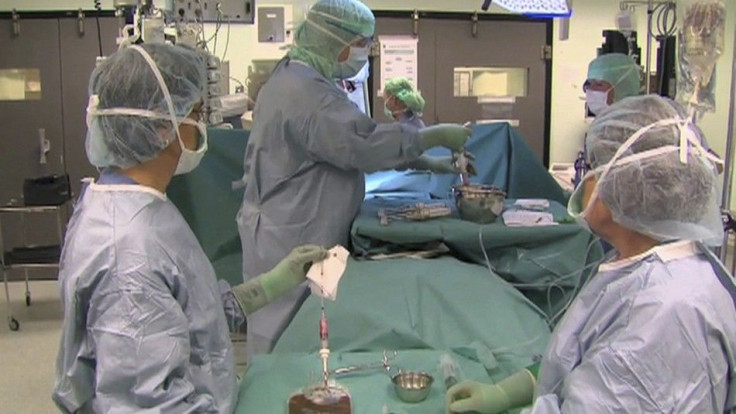Cancer patient saved by first-ever synthetic organ transplant

An unidentified 36-year-old man with tracheal cancer receives widespread media attention in addition to a new lab-made windpipe constructed with his own stem cells in a procedure that Sweden surgeons are calling the first successful attempt of its kind, officials said Thursday.
The surgery performed at the Karolinska University Hospital in Stockholm reports that the surgery was performed June 9, and that the patient, who will be released from a hospital Friday, is on his way to a full recovery. Karolinska told the Associated Press that the patient's late stage cancer had almost fully blocked his windpipe, or trachea with no suitable windpipe donors, leaving the man with little alternatives.
Because the cells used to regenerate the trachea were the patient's own, there has been no rejection of the transplant and the patient is not taking (anti-rejection) drugs, Karolinska said in a statement.
Professor Paolo Macchiarini, who has also involved in previous windpipe transplants, told the AP that the surgery at Karolinska is the first synthetic tissue engineered windpipe that has been successfully transplanted. To perform the surgery, an international team lead by Macchiarini built a scaffold and a bioreactor to seed it with the patient's stem cells. New cells to line and cover the windpipe were then grown on the scaffold for two days before it was transplanted.
The AP reports:
Windpipe transplants have previously been performed using donor windpipes and the patients' own stem cells. But this latest surgery in Sweden is the first to use a man-made organ. Experts say synthetic structures could be used to fashion simple organs like the windpipe, esophagus or bladder, but that it will be years before scientists can create more complicated organs like kidneys or hearts in the laboratory.
The plastic polymer used to make the artificial windpipe has previously been used in tear ducts and blood vessels. It has a spongy surface to speed cell growth. The makers of the synthetic windpipe said they thought its most immediate application would be for patients with tracheal cancer and that a similar structure might also help people with cancer of the throat.
Patients with those types of cancer are often diagnosed late and have few good treatment options. Macchiarini said that more surgeries like the one just performed in Sweden are planned before the end of this year and will include two adult patients and one child.
© Copyright IBTimes 2024. All rights reserved.





















